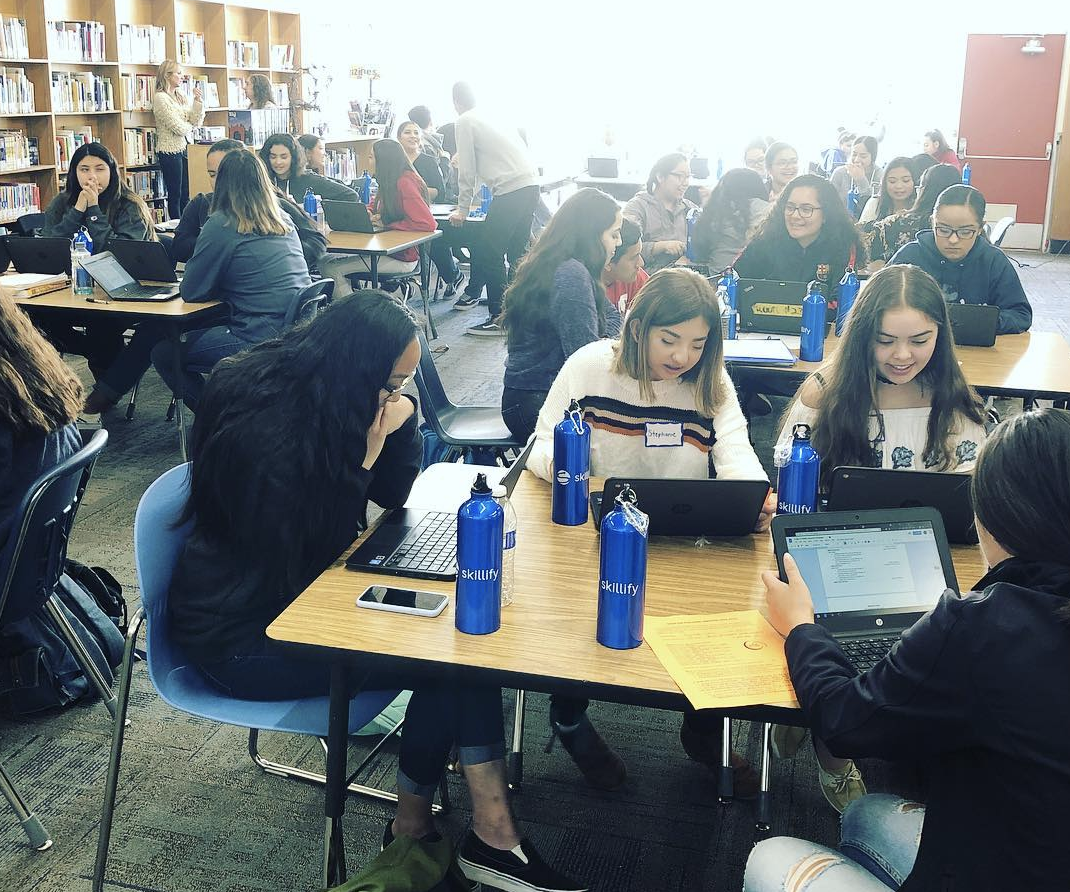
04 May How Work Experience Helps Students Improve Classroom Performance
Should students work? Will it help them improve classroom performance?
For decades, there has been debate around this question. Some fear that working negatively impacts grades and overall classroom performance. Others believe that career exploration through work experience promotes self-awareness and allows students to improve classroom performance by engaging with their classwork in a meaningful manner. Regardless, both parties share the same concern: what allows our students to perform better within the classroom and improve classroom performance?
Let’s begin by understanding how we can measure improved classroom performance.
What the Research Says
Classroom performance is not only measured by a student’s grades. Measurements include student-faculty interaction, engaging in active and collaborative learning, confidence levels, etc. In a study conducted by Dr. Gary R. Pike, Executive Director of Information Management and Institutional Research at Indiana University-Purdue University Indianapolis, Dr. Pike includes such measurements when researching the impact of work experience on improving classroom performance. Given that full-time students spend 20-30 hours a week on schoolwork, the research found that students who work for the remaining hours, 20 hours or less per week, report higher levels of engagement and classroom performance. There is also no negative correlation between working and grades for these students.
Even students who worked more than 20 hours per week indicated being more engaged than students who did not work at all.
Another study, conducted at the University of Iowa’s Center for Research on Undergraduate Education, highlights the positive effects of work on a broader series of outcomes for students that contribute to improved classroom performance. These outcomes included critical thinking, moral reasoning, socially responsible leadership, and psychological well being.
“Work doesn’t really have much of a negative effect on cognitive-type outcomes like moral reasoning and critical thinking until you get to a ton of hours,” said Salisbury. “But work has a positive effect on things like psychological well being and leadership even when you’re working a ton of hours.”
Impact on Well-Being
Given the rising concerns around student stress levels and mental well-being, it is important to the note the positive effects of working for students. Studies have found that 25% of all teenagers struggle with anxiety, and educators have noticed the resulting decrease in classroom performance. Research is underway to understand ways to help our teenagers, and a study conducted by EBSCO found that “internships can increase students’ maturity levels and can improve their self-confidence and self-concepts.”
Work experiences continue to show positive impacts on students, allowing for not just improved classroom performance but also overall well-being.
Employers Get Involved
Employers have also taken note of these indicators. More employers today are providing students with opportunities for career exploration. Students can now take advantage of externships and week-long job shadow programs that may be available during Spring and Winter holidays breaks. More companies are building out mentor programs to allow their employees to support local youth.
It is clear that as students engage with the working world, they develop a greater sense of leadership and confidence, which inevitability increases classroom performance and supports them inside and outside of the classroom.
Originally published in EdTech Review

No Comments